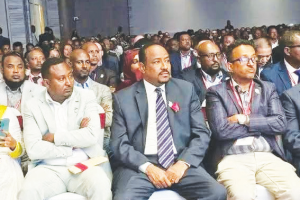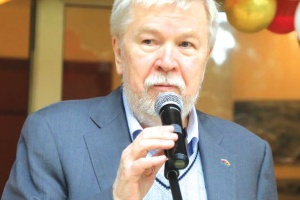
Culture is an embodiment of a community’s identity. It has a power to describe what societies look like. A given society’s thought, art, philosophy, ethics, costumes, living styles, creativity and other physical and non physical identities of the community are taken as its culture.
Culture is a wide premise which sets a given society peculiar from others with their language, history, heritages, alimentation, house construction, wearing styles, among others. Cultural industries produce tangible and intangible wealths born out of creativity.
They can create contemporary and traditional products by using cultural resources. They have power to generate income. Creativity is the hallmark of all cultural industries. They depend on cultural knowledge and come up with products and services together with social, cultural and economic advantages.
Thus, working on the community’s culture is tantamount to addressing all the public life. Scholars from the sociology department also describe it saying “Development is always a fruit of culture!” to highlight the blending of the two. Organizations and persons who work on culture and development stress that governments should be culture centered, while setting development agendas.
It is for this reason that the Premier Dr. Abiy Ahimed had brought lots of artists together in his palace as soon as he came to the power. He also deliberated with them about how they could better serve their country benefiting themselves. Cultural industries, which comprise handicrafts, literature, audiovisual arts as well as multimedia industries are backbones of lots of countries in the world. For example, Indian Film Finance Corporation (EFFC) was started giving loan with small amount of interest for quality films in 1960. In 1980 followed The National Film Corporation.
It responsibility also developed into disseminating films on top of giving loans. Indian government also supports the film industry through facilitating national film prizes and professional film training. It as well sponsors film festivals. The China’s government incentive mechanism for cultural investment also subsidizes interests on loan. It also injects starting capital, create investment fund to work with companies that intervene in key cultural strategic sectors.
By facilitating ways to manage cultural resources wisely, they are supporting their cultural industries. In Ethiopia, there are many opportunities which could promote investment. Weather conditions and natural resources, stable economy of the nation, big local market opportunity, big number of human power, infrastructural facilities, among others can motivate investments. There are selected sectors, which are taking incentives from the government.
This makes them strong and increase in number. But, incentives which are given for promoting investments like tax free and other custom duty free are not included in the cultural sector industries. So, it has played its negative role on demotivating private investors, as the sectors expert talk about on different stages. Still, Ethiopian cultural industries couldnot be effective and they cannot play their role for the nation’s development. Lack of attention, dearth of working places and shortage of capital will be the main reason as to Ministry of Culture and Tourism (MoCT). As to Desalegn Hailu, Ethiopian Film Producers Association Executive Board’s Vice President, the judiciary, legislative and executive bodies have low awareness on cultural industries.
This ties the government down from creating job opportunities for millions of youths and from garnering foreign exchanges. “We are losing about 80 billion birr per year for not using the over eighty Nation, Nationalities and Peoples’ costumes,” he noted. He added the country incurs loss for not using its handicraft, film, music and other resource.
The nation is working hard on industry parks. It is a good move but it can make only artifacts useful for humankind. It must be noted that cultural industries nourish mind. So it obligates more job. Ethiopia has a big resource for the world market.
That is referring more than 80 ethnic groups’ cultural values ,he added. Teferi Tekilu is Cultural Institutions and Experts’ Development worker in Cultural Industry Development Directorate within MoCT .Speaking on the issue he said that, for its burgeoning as a base for all developments cultural industry needs incentives. It is seen as a luxury, that is why it is not bolstered by incentives. But it is all about human being and need more concern, as to him. So, the Ministry is working with stakeholders to assure incentives for the sector.
Herald December 23/2018
BY GENET FEKADE




